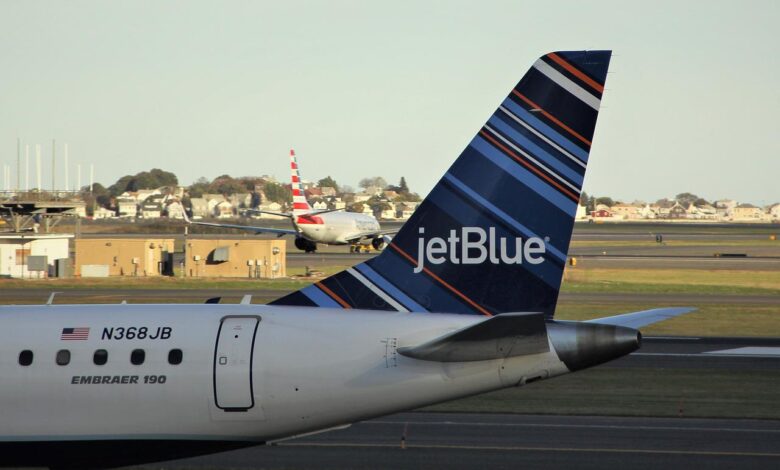JetBlue Announces Alliance Termination with American Airlines to Secure Spirit Merger Agreement

JetBlue is breaking up with American Airlines to make their Spirit Airlines merger dreams come true. In a move to protect their $3.8 billion deal with Spirit (NYSE:SAVE), JetBlue has decided to comply with a court order to sever ties with American (NASDAQ:AAL).
Although JetBlue strongly disagrees with the court’s ruling, they have chosen not to appeal it. Last week, they informed American of their decision to terminate the three-year-old alliance, which allowed both airlines to coordinate flights and share revenue.
American, on the other hand, is not giving up without a fight. They still plan to appeal the ruling. As the largest airline in the U.S. based on fleet size, American is determined to challenge the court’s decision. Meanwhile, JetBlue believes that by ending their alliance with American, they render the U.S. Department of Justice’s objections meaningless. These objections led to a lawsuit filed by the DOJ to block JetBlue’s merger with Spirit—a merger that could reshape the U.S. airline industry, making it the biggest since the American and US Airways merger in 2013.
In a staff memo, JetBlue’s CEO Robin Hayes expressed his enthusiasm for the decision, stating that it would allow them to focus even more on joining forces with Spirit. Despite the termination of the alliance, JetBlue remains committed to providing uninterrupted service for their customers. They anticipate developing a wind-down plan that safeguards consumer interests.
Legal expert Andre Barlow from Doyle, Barlow & Mazard PLLC doesn’t believe that ending the alliance will significantly impact JetBlue’s legal battle over the Spirit deal. In fact, Barlow thinks it might even work in favor of the DOJ.
For American, the dissolution of the alliance poses a setback to their revenue growth strategy. They were relying on their alliance partners, like JetBlue, to transport passengers in markets with limited competition. The “Northeast Alliance” helped American stay competitive in the New York market, where they were losing money. It allowed them to drop unprofitable routes while maintaining a presence in New York and providing traffic to their global partners serving the region.
As of now, American has not disclosed their plans for the capacity they previously shared with JetBlue. They might have to rebuild their capacity or reduce international flights from the area.
U.S. District Judge Leo Sorokin in Boston ordered JetBlue and American to terminate their partnership on May 19. The judge believed that the alliance “substantially” reduced competition in the domestic market.
The DOJ filed a lawsuit in 2021 seeking to dissolve the Northeast Alliance, which was announced the previous year. They claimed it created a “de facto merger” of American and JetBlue operations in Boston and New York, eradicating competitive incentives and increasing the cost for consumers flying out of busy airports in the region by an estimated $700 million annually.
JetBlue assures customers that their decision to end the alliance will not lead to immediate changes. They aim to develop a wind-down plan that prioritizes customer protection. However, without the alliance, JetBlue anticipates requiring fewer employees in New York and Boston. They commit to managing staffing levels through natural attrition, transfer options to other cities, and reduced new hiring, rather than resorting to furloughs.





